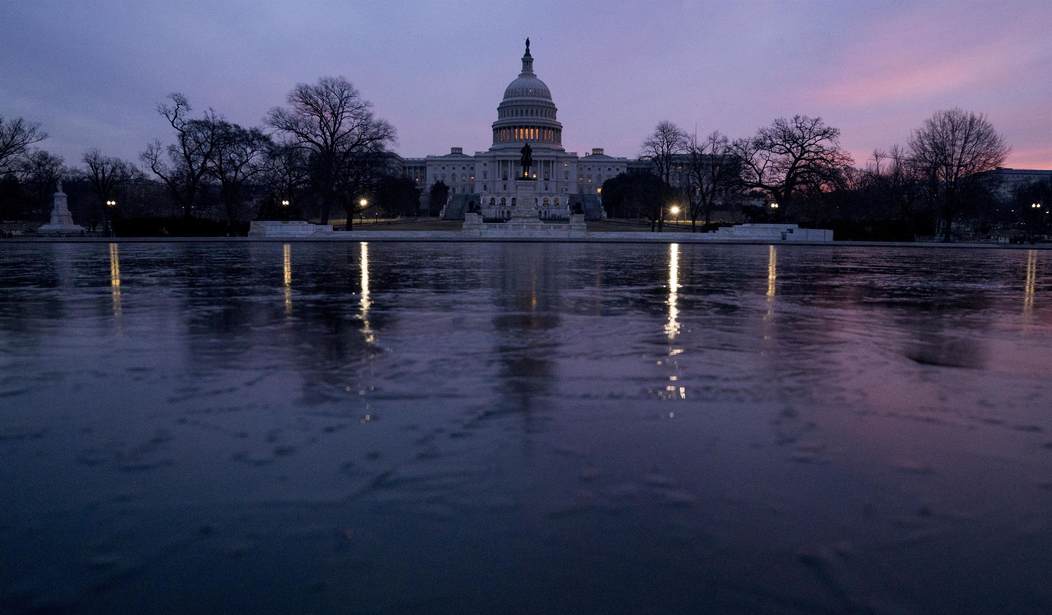Editor's note: This column was co-authored by Emma Kaden.
On Friday, the federal government will partially shut down, unless Congress passes last-minute funding measures. Many Americans worry the Christmastime shutdown will be as devastating as a stocking full of coal—but the shutdown might not be so bad after all.
The U.S. government has shut down numerous times over the past 50 years, and the impact has been as small as the “Whos” in “Whoville.” In fact, since 1976, there have been 19 government shutdowns, and the longest shutdown (December 1995) only lasted 21 days. Of course, according to many in the mainstream media, a government shutdown, like the Grinch, will bring utter devastation to the country (and ruin Christmas). History has clearly shown, however, that this isn’t the case.
Here are some of the most common myths about what will happen if the government shuts down.
MYTH: Americans won’t receive their Social Security benefits.
There is simply no truth to this claim. Social Security, like Medicare, is a mandatory spending program, which means that Social Security payments would be 100 percent unaffected by a partial government shutdown. All 62 million Americans receiving Social Security benefits will still get their checks in the mail, regardless of what happens with Congress and President Trump. This has been the case for literally every single government shutdown in modern history.
MYTH: All federal agencies will be affected.
Because Congress has already allocated funds for three-fourths of the federal discretionary budget for 2019, the pending partial shutdown would only impact a limited number of government services. Agencies that would be affected include those under the Departments of Homeland Security, State, and Treasury—and a partial shutdown would not cut all funding for these agencies, either. Most agencies have already been funded and will not be impacted by the shutdown. This includes the Departments of Defense, Education, Energy, Health and Human Services, and Labor, among others.
Recommended
MYTH: All government employees will not be paid.
There are two million federal employees in the United States, not including the U.S. military. About 1.2 million employees work at agencies that have been fully funded for 2019, which means these 1.2 million government workers have nothing to worry about if the pending partial shutdown takes place. Of the remaining 800,000 Americans employed by the national government, only about 350,000 are considered “non-essential” and could be furloughed in the event of a government shutdown. Although that may seem dire to some, the furlough often ends up being more like a paid vacation. In the past, Congress has passed legislation to retroactively compensate all federal employees that were furloughed during shutdowns.
MYTH: The United States would default on its debt payments.
The federal shutdown only impacts discretionary spending, not interest payments on behalf of the U.S. government to foreign and domestic debtholders. The U.S. government would only default on its debt payments if the debt ceiling was not raised to accommodate the national debt. Currently, the debt ceiling has been suspended until March 1, 2019. In essence, federal spending cannot be impeded until that date.
MYTH: National parks and monuments will be closed.
Unless the Trump administration takes a page out of the Obama administration’s government-shutdown playbook and unnecessarily closes national parks and monuments to the public, odds are that these national treasures will stay open. The only caveat is that the visitor centers might not be open, and park rangers might not be around to help visitors.
The pending government shutdown might not seem all that bad once you know the facts, but the truth is that a shutdown shouldn’t happen at all. The shutdown is a symptom of a much larger problem: a broken federal budgeting system. Until that problem is fixed, expect more government shutdown myths in the future.
Chris Talgo (ctalgo@heartland.org) is an editor at The Heartland Institute. Emma Kaden is an intern at The Heartland Institute.

























Join the conversation as a VIP Member